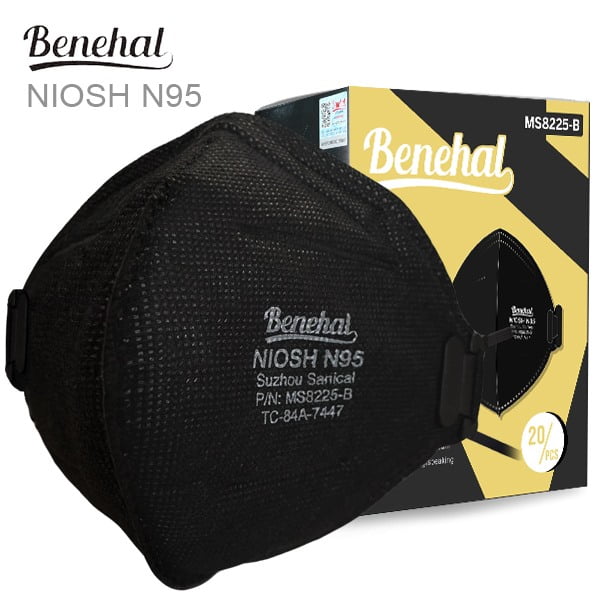N95 masks are specifically engineered to provide a high level of respiratory protection by filtering out a minimum of 95% of airborne particles. These masks have found applications across diverse industries such as construction, mining, and healthcare, where they play a pivotal role in safeguarding workers from inhaling hazardous substances. In the context of interior trim work, N95 masks can serve as a crucial defense against the inhalation of dust and other particles that are often released during the installation process.

Key Considerations:
Proper Seal and Fit: Effective usage of an N95 mask requires it to form a secure seal against your face. It’s imperative that your breath passes through the mask and not around its edges. Elements like jewelry, glasses, and facial hair can create gaps between your face and the mask’s edge. For optimal performance, it’s recommended to be clean-shaven. Incorrect sizing, improper placement, or inadequate adjustment of the mask can also lead to gaps.
NIOSH Approval: The National Institute for Occupational Safety and Health (NIOSH) maintains a list of approved N95 respirators. These masks typically exhibit a cup, flat fold, or duck bill shape. They come equipped with two straps that securely fasten around your head. The presence of a NIOSH-approved TC (Test and Certification) number on the mask is indicative of its compliance with N95 standards and should be visibly printed.
Disposable and Time Usage: N95 masks belong to the category of disposable filtering facepiece respirators. As such, they are best suited for use within a limited timeframe, generally not exceeding 6 hours. However, it’s important to note that N95 masks do not provide all-encompassing protection. They are not designed to guard against toxic gases, chemical exposures, or corrosive substances.
In essence, N95 masks serve as an essential line of defense, particularly in environments where airborne particles pose a health risk. Their ability to filter out a significant portion of particles, coupled with proper usage practices, makes them a valuable asset for protecting workers’ respiratory health across various industries.

